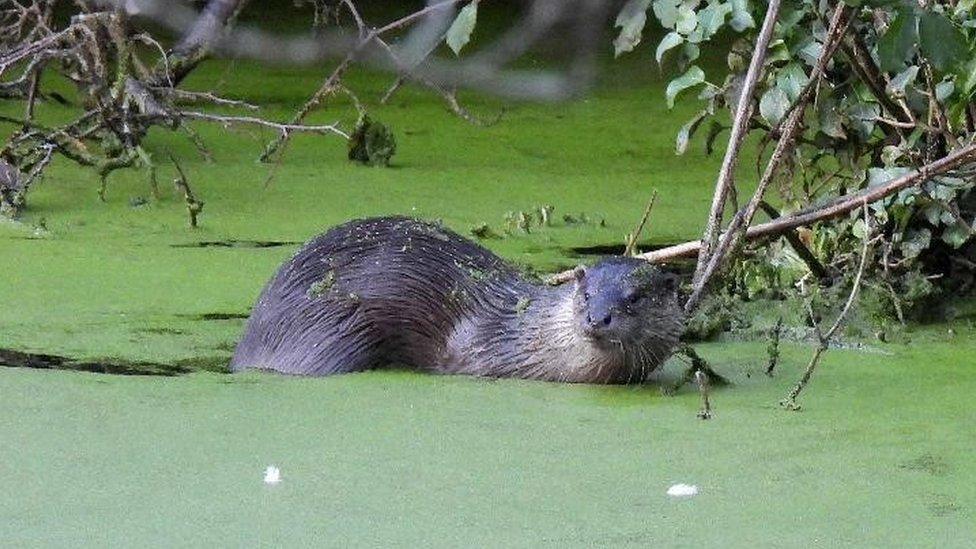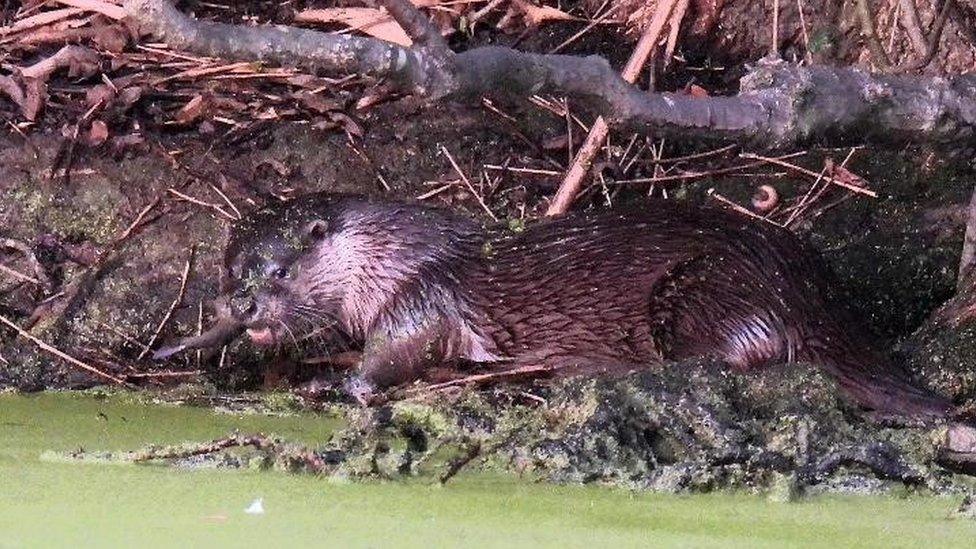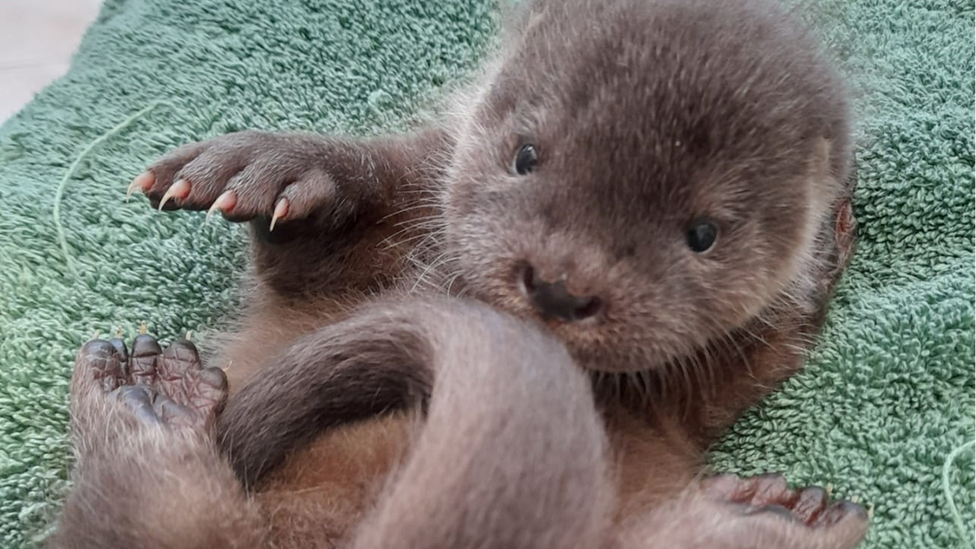Rare otter filmed bathing and building in Ipswich park
- Published
Rare otter filmed swimming in Ipswich park
A European otter, rare to southern England, has been captured on video bathing and home-building in a stream in a town centre park.
The secretive mammal was spotted fishing in the waterway, which runs through Holywells Park in Ipswich.
Park keeper Matthew Garnham filmed the otter and shared it with Suffolk Wildlife Trust, external (SWT).
Otters have been sighted in Ipswich in the past, along the River Orwell and in the Port of Ipswich, SWT said.
"However the presence of an otter in Holywells Park demonstrates how wildlife is adapting to changing landscapes, and habitat loss - and the importance of urban greens spaces as habitat for wildlife," said the trust.
The wildlife charity explained that otters were elusive animals, and one of the UK's top predators, feeding mainly on fish - particularly eels and salmonids - water birds, amphibians and crustaceans.
"Otters are a rare species and require clean rivers with an abundant source of food and plenty of vegetation to hide their secluded burrows - known as 'holts'," a SWT spokesman said.

A European otter was filmed swimming in a stream in Holywells Park in Ipswich
Mr Garnham said the park wanted to ensure the otter was undisturbed by the public.
"I was surprised to hear one had make it into the park," he said.
"I'm wondering how many otters we've got. Some travel in family groups, normally a sow with her pup's.
"It's very comfortable in the park feeding on the fish."

The otter appears to be making a home on a stream bank in Holywells Park, Ipswich
Christine Luxton, SWT's chief executive officer, said the recent floods could explain why the otter had decided to travel further inland.
"Rivers are essentially wildlife highways and an important part of habitat connectivity," she said.
Wildlife Trusts, external describe the European otter as a rare but widespread species, found throughout the country but absent from parts of central and southern England, the Isle of Man, the Isles of Scilly and the Channel Islands.
The animals are protected in the UK under the Wildlife and Countryside Act, 1981.

Follow East of England news on Facebook, external, Instagram, external and X, external. Got a story? Email eastofenglandnews@bbc.co.uk , externalor WhatsApp 0800 169 1830
Related topics
- Published27 September 2023
